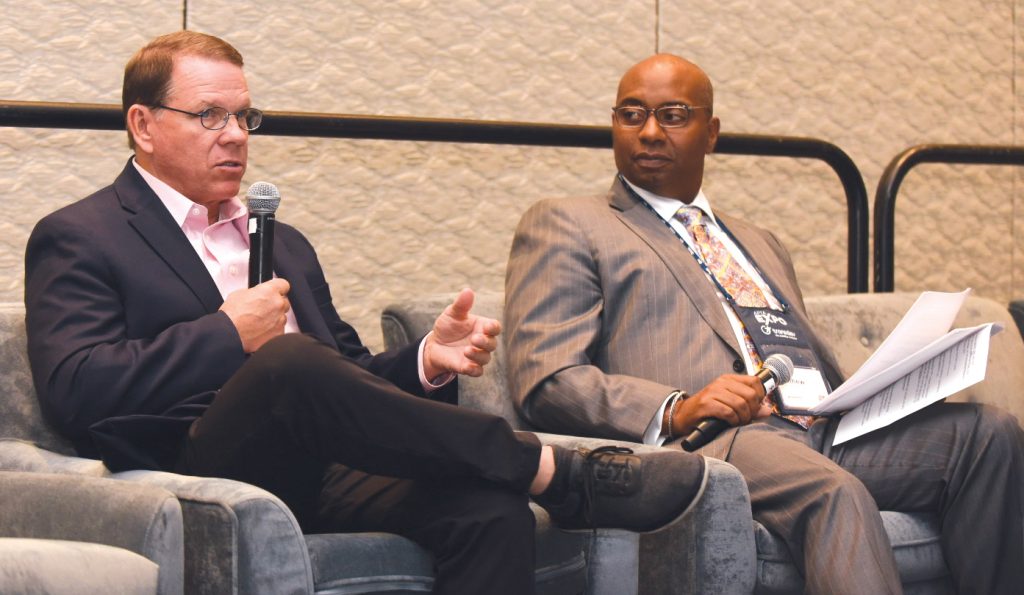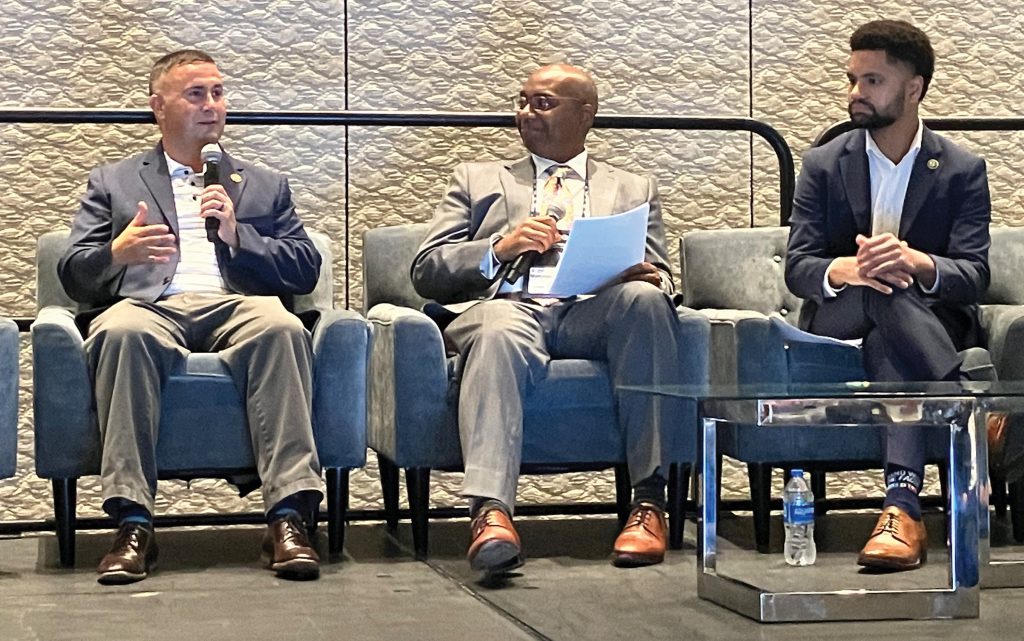Essential Infrastructure Work Stalled By House Speaker Impasse
10/20/2023

Rep. Sam Graves (R-MO), chairman of the House Committee on Transportation and Infrastructure (T&I), was the featured speaker for a planned update on congressional goals for the coming year in transportation at the Congress and the Year Ahead in Infrastructure Investment session. However, due to the “extraordinary events happening worldwide, and within the House of Representatives right now,” his conversation with session moderator Matthew Tucker, chair of the APTA Legislative Committee and global transit market sector director at HDR, was centered on the importance of bipartisan efforts.
First, Graves gave a brief update on the work of his committee, as well as its priorities. The T&I Committee is charged with reauthorizing those agencies governing all modes of transportation, infrastructure resources, the U.S. Coast Guard and all public buildings, plus oversight of about half the Infrastructure Investment and Jobs Act funding, he said. Much of that work has been stalled by the paralysis in the House following the Republican ouster of House Speaker Rep. Kevin McCarthy (R-CA) Oct. 3.
He added, “Just about every member of Congress understands the need for transit,” although many wanted to give states more flexibility in using federal funding.
Following his update, he took questions from Tucker, who observed that T&I has historically been a bipartisan committee. Tucker asked Graves why, and how, he has succeeded at maintaining that aspect. Graves explained that the work was simply too important for politics. “There aren’t statements to be made when it comes to transportation and infrastructure projects, there really aren’t. Infrastructure is something that governments should do—and should do well.”
Graves also credited ranking Democrat Rep. Rick Larsen (D-WA) with helping to restore the bipartisan nature of the committee after it “drifted” in recent years. “Rick and I told our members on the very first day, ‘This is a work committee. This is not a show committee.’ ”
Tucker asked Graves, and later in the session, Reps. Darren Soto (D-FL) and Maxwell Frost (D-FL) about the value of telling public transit’s success stories to elected officials. All three agreed that those communications were vital.
Frost added that beyond APTA’s work in telling transit stories, the individuals involved also “… have a great collective power … to help shape Congress. And it’s not just the folks who work for your agencies, it’s your workers, it’s the unions that are part of those agencies. It’s your customers, your riders.”
Asked about the direct benefits of the Bipartisan Infrastructure Law, Soto had a ready list, including the Interstate-4 expansion, and improvements to passenger rail, air travel and pedestrian safety. He noted that these improvements benefit local people, not just tourists, as the state’s population and cost of living both surge.
“Public transportation is the equalizer, and we’re going to be continuing to invest in electric vehicles, with LYNX [Central Florida Regional Transportation Authority], expanding Bright Line [high-speed rail], Sun Rail, and we even have some forward thinking in companies like Beep that does autonomous buses, and Lilium, which is working on air taxis.”
Also, during the session, congressional staff members joined an off-the-record discussion on upcoming legislative priorities. The panelists included Michael Bauman, staff member of the T&I Committee’s Highways and Transit Subcommittee, and Homer Carlisle, Majority Senior Advisor on Infrastructure, Transportation and Transit Policy in the U.S. Senate.
